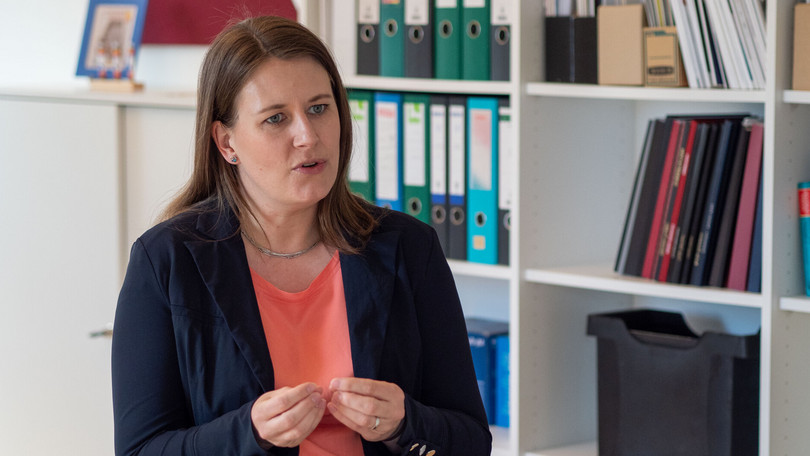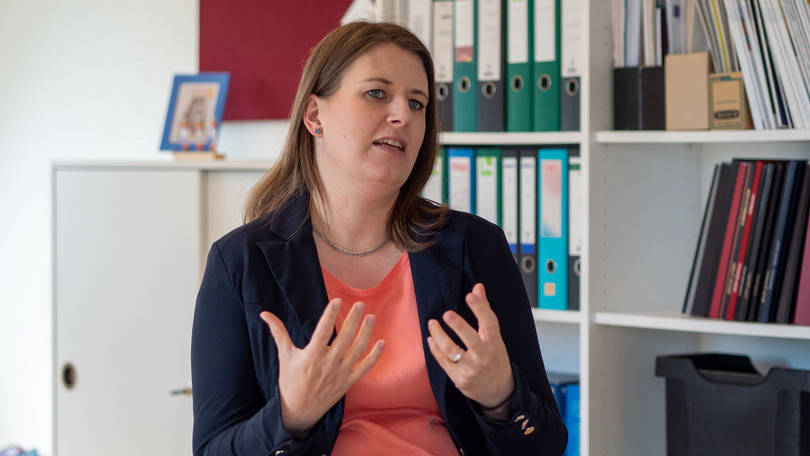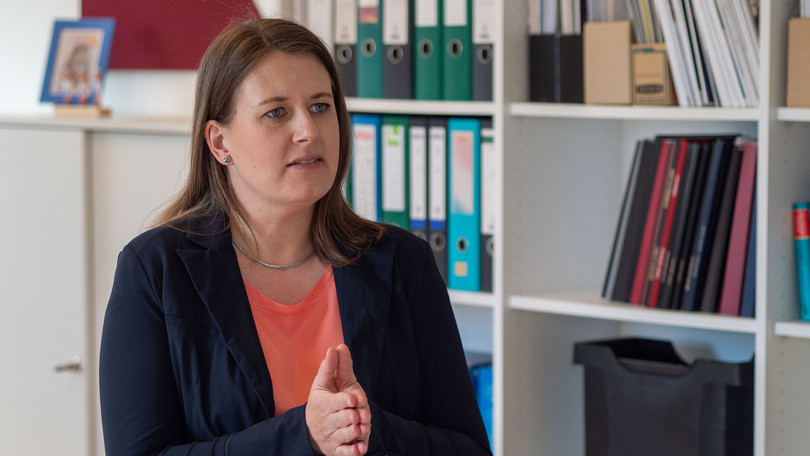Diversity Day 2023: Natural science inclusive
2023-05-23 The science didactician Prof. Dr. Simone Abels wants teaching that promotes strengths and does not emphasise weaknesses. She doubts the current teaching concept of diagnostics and differentiation and is establishing a new way of thinking together with student teachers.
- Professor Abels, you think of inclusion very broadly and want to address pupils with different needs with your concept - from physical limitations to emotional deficits to language barriers.
- Strictly speaking, we want to address all students without looking at their deficits. We avoid categorisation whenever possible. Categories can help us understand issues and develop support measures, but they also make us think in pigeonholes. The difficulty is that once someone is pigeonholed, it is hard to get them out. On the other hand, we see how overwhelming the situation often is for teachers. The idea of inclusive teaching is spreading, according to which teaching is individualised and differentiated for individual pupils: "Only when I know the individual learning requirements on the basis of comprehensive diagnostics can I actually give good lessons. In extreme cases, this ends with umpteen individualised worksheets.
- We advocate a different thesis: we don't look at the supposed deficits of the students, but at the barriers of the subject matter. What makes science difficult? Where are they too abstract? Where can I bring the science lessons more into the living world of my class? How can I inspire students instead of telling them: "You still haven't understood the acid-base concept"?
- Chemistry, physics and biology, of all subjects, are considered preparation-intensive. Are these subjects at all suitable for inclusive teaching?
- Science lessons with modern and accessible topics in areas such as the environment, nutrition or energy can reach a large number of pupils. If I start with the classical subject concepts, I often lose a large part of the students at the beginning of the lesson. But if I ask: What is the popular energy drink actually made of or how sustainable is an electric car? Then I can make the relevance of the underlying subject concepts clear to the students. In science lessons, we can work in an action-oriented and descriptive way. We can work with a wide variety of media. From very concrete haptic perception to very abstract model thinking, we have a wide range at our disposal. This makes science very suitable for inclusion.
- How can this concept be implemented in practice?
- In our Leuphana Learning Lab, for example, we work with learning landscapes: The students find different learning opportunities on tables, which they then work on individually or in a group. We give the students a lot of freedom without leaving them alone. For example, at a table on bees, one group wanted to interview a beekeeper, others wanted to analyse the sugar content of honey. The teams can share their findings afterwards. We teachers look at what barriers the subject matter has: are there, for example, motor, conceptual, procedural or safety challenges? If necessary, we provide prepared support materials or go into learning support so that all students can find an access to learning. In addition, students can choose to dictate a protocol in the form of an audio file, create an explanatory video or a photo story, draw or write. We want to support students to work on their strengths and not point out what they cannot do.
- Students have the opportunity to learn how to implement such concepts with students and how to guide the learning process. Conversely, we hope that the teachers who come to us with their classes will take something of this back to their lessons when they experience their students differently in our learning context.
- However, educational standards and performance measurement also expose students' subject deficits.
- I fear that the movement towards standardisation has misguided us. We have to get rid of the idea that everyone can do the same thing in the end. That is absolutely unrealistic in my eyes. The standards were actually developed to check the quality of our education system. So at most, it can be about the deficits of the system. But what is interpreted is what individual pupils can or cannot do. But this is how we sort people out. What do we do with the people who fail to meet even the minimum standards? We should better find out where the strengths of our students lie. Then people with diverse abilities leave our school system. Inclusive science education tries to encourage and motivate everyone, including those who want to pursue science as a career. Wouldn't it be terrible if we all ended up with the same interests and abilities? The world doesn't work that way - and neither does school.



